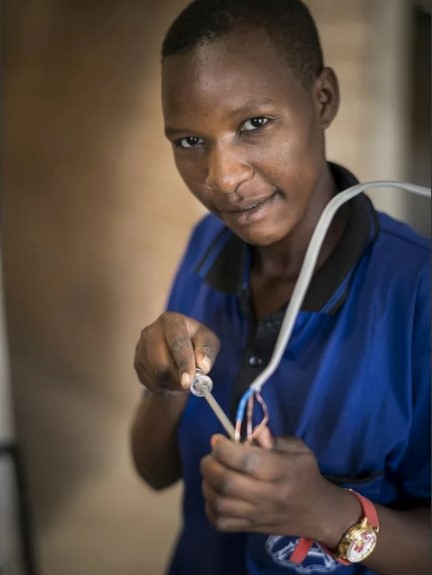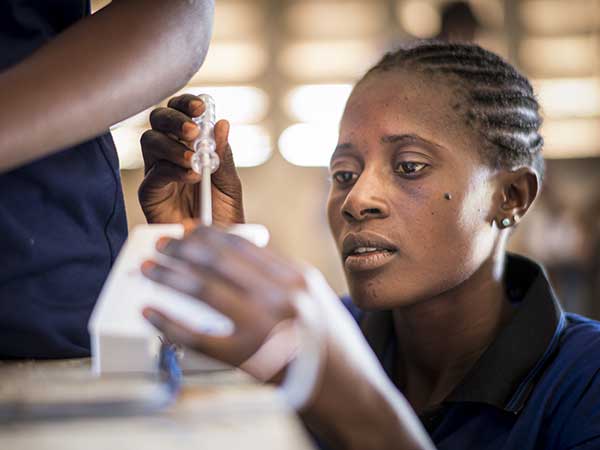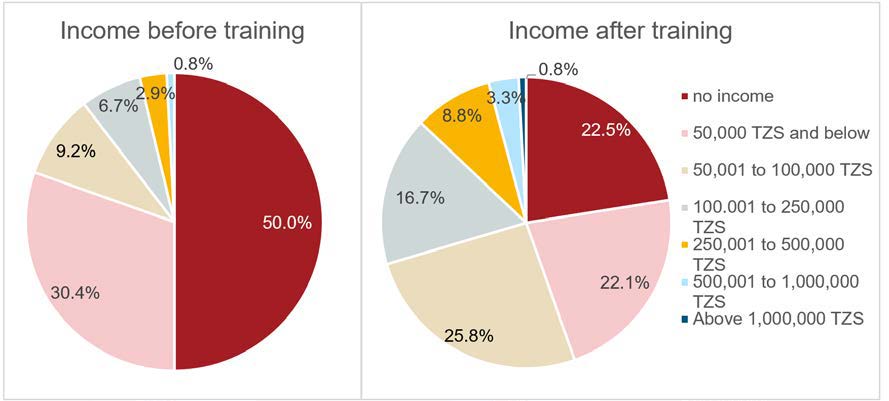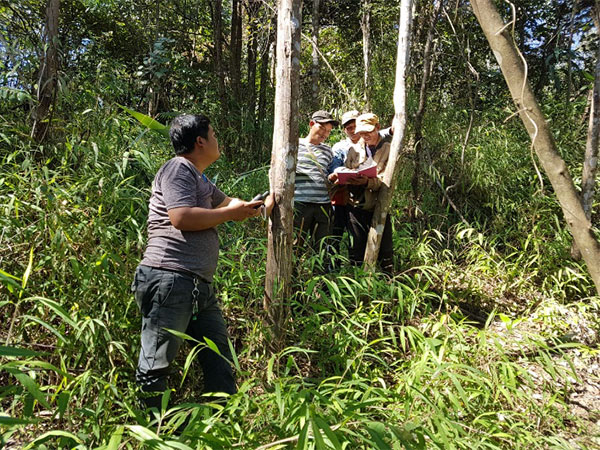Training facilitates entry into the labor market
The situation
Every year, 850,000 young women and men enter the labor market in Tanzania. However, their chances of finding decently paid work are rather small. In particular, a lot of young people from the central regions of the country often have no qualifications or even dropped out of school. Many families simply cannot afford a school diploma or the distances to school are too far. Due to a lack of alternatives, the young people seek simple work in agriculture. The income is barely enough to live on.
The concept
The YES project offers young people short vocational training courses. Currently, they are organized for eleven professions, ranging from beekeeping, baking, working in beauty salons or hotels, to masonry and electrical installation. The trainings usually last three months and are recognized by the state.
The young people receive both theoretical and practical education. The training courses are adapted to the local market. They enable the young men and women to enter professional life in an appropriately paid position.

Example vocational training: Beekeeping
The training as a beekeeper is intensive and comprehensive. The young men and women not only learn how to care for bees and harvest honey. They are then able to process the honey professionally. In addition, the training includes the sewing of the necessary protective suits and the construction of nesting boxes and bee hives.
Interactive learning units
Private and public institutions across the country can adopt the model for the short vocational training courses and adapt them to local conditions. However, it is often difficult for trainees in rural areas to attend classroom courses. Sometimes they have to travel long geographical distances. Particially they find reading itself difficult. Therefore, interactive learning units are also available for self-study via cell phone as part of the training courses.
“I’m working hard. When I’m finished here, I’ll know everything I need to know.”
Trainee Teresia Sijia
Example vocational training: Electrical installation
In the field of electrical installation, the men and women learn in theoretical lessons how to plan electrical circuits, for example. In the practical part, they then learn to install it.

Young women and men who dropped out of school take part in future-oriented short vocational training courses. They learn the necessary skills and competencies they need for the labor market. At the moment, the courses are offered in 11 professions. This trainings enable them to gain a foothold in the labor market and permanently improve their living conditions.
Education improves life situation sustainably
In the training courses young people – especially dropouts – learn a future-oriented profession. This significantly increases their chances on the labor market and, therefore, secures and raises their income. The following graphic shows how the situation has already improved.
A first phase of the YES project was already running 2018-2021, and a study conducted in late 2020 already showed an increase in participants’ income.
Strengthen self-confidence
In addition to the vocational skills, the young participants also strengthen their social and personal skills in the courses and gain self-confidence. They learn to develop ideas, communicate clearly and think along with others. The classes also focus on reliability, proactivity and self-esteem. After all, the learners have to be convincing in job applications and on the job.
“The course helped me to believe in myself. I used to feel very pessimistic about the future, I couldn’t see a light at the end of the tunnel. Now I know that one day I will be someone, maybe even become an engineer.”
Trainee Deus Luhengo
Encourage entrepreneurship
Those who want to start their own business right after completing their training or later also need entrepreneurial skills such as business planning, marketing or financial management. For this, graduates can attend appropriate courses additionally. They receive support in drawing up business plans and in finding loans for starting a business.








